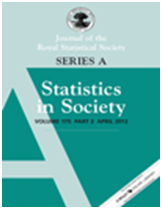Modeling Member Behaviors in User-Generated Content Sites: A Semiparametric Bayesian Approach

We develop a model to understand and describe the inherent behaviours and interactions of members over time through the medium of user-generated content (UGC) in an on-line community. Because the behavioural event counts of generating and accessing UGC by on-line users serve as the two most important metrics to judge the success of on-line communities, we propose a bivariate zero-inflated Poisson model to model simultaneously the daily counts of the two main UGC-related activities. In particular, we consider interdependences of the repeatedly measured behavioural events within members, model the dependence of the current eventcounts on the past event counts and explore the probable non-linear effects of time at the individual level. Furthermore, we incorporate interactions between members by constructing a set of individual-speciï¬c time varying measures in an integrated modelling framework. In our empirical applications, we examine key behavioural determinants influencing member behaviours in the UGC site. As part of our substantive contribution, we highlight the model's ability to make accurate predictions about the evolution of the on-line community
Modeling Member Behaviors in User-Generated Content Sites: A Semiparametric Bayesian Approach

We develop a model to understand and describe the inherent behaviours and interactions of members over time through the medium of user-generated content (UGC) in an on-line community. Because the behavioural event counts of generating and accessing UGC by on-line users serve as the two most important metrics to judge the success of on-line communities, we propose a bivariate zero-inflated Poisson model to model simultaneously the daily counts of the two main UGC-related activities. In particular, we consider interdependences of the repeatedly measured behavioural events within members, model the dependence of the current eventcounts on the past event counts and explore the probable non-linear effects of time at the individual level. Furthermore, we incorporate interactions between members by constructing a set of individual-speciï¬c time varying measures in an integrated modelling framework. In our empirical applications, we examine key behavioural determinants influencing member behaviours in the UGC site. As part of our substantive contribution, we highlight the model's ability to make accurate predictions about the evolution of the on-line community
